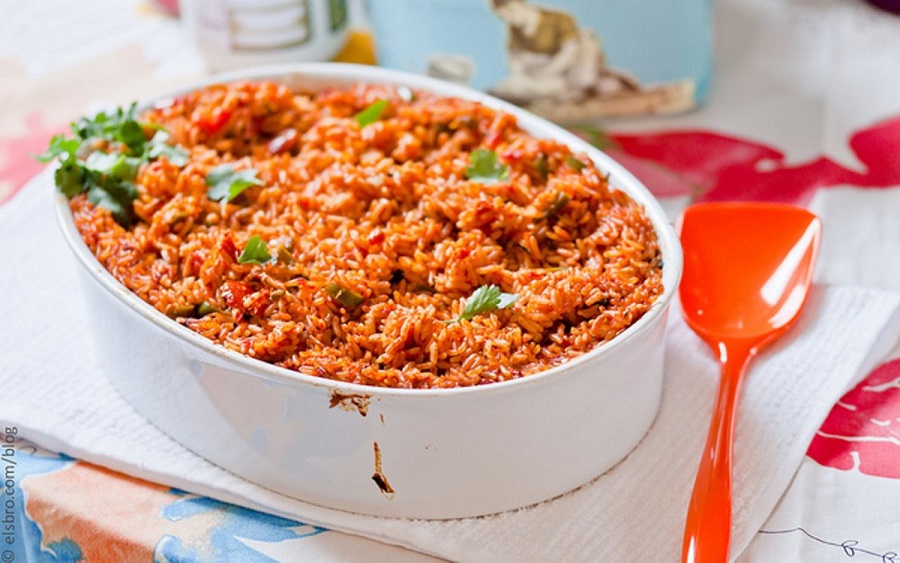The SBM Jollof Index for Q1 2020 has shown that Nigerians are being forced to spend more on essential food items, due to the Coronavirus pandemic and subsequent lockdowns that ensued.
According to the report, the prices of both local and foreign rice spiked in Abuja, Anambra, Calabar, and Lagos state after President Muhammadu Buhari declared lockdowns in some parts of the county. The lockdowns brought about panic buying by many Nigerian consumers, thereby causing the prices of those food items to skyrocket.
A bag of foreign rice, which initially sold for an average of N26,000 at Wuse market in Abuja, had spiked by 7.69% to N28,000 by March ending. The report also noted that there was an 8.11% increase in the price of local rice which went up from an average of N18,500 to N20,000. Note that these dramatic price increases have also been attributed to the disruption of the supply chain. This is because the big markets in Lagos, Abuja and Port Harcourt are all closed, thereby forcing stores to source for goods directly from the hinterland.
(READ FURTHER: KPMG Nigeria outlines the impacts of a Twin Shock on Nigeria)
The prices of other commodities such as garri and tomatoes also increased by 122% in Ibadan, 100% in Anambra, and 114% in Port Harcourt, as itemized in the report. Some parts of the report said:
“In the seventeen quarters in which we have compiled the Jollof Index, it is clear that the Coronavirus pandemic represents the single most disruptive determinant affecting food prices in the country. While prices followed an upwind, but mostly gentle trend, the month if March was very different. In anticipation of a shutdown as a result of the Covid-19 epidemic, the extent of panic buying by Nigerian consumers was clearly observed in the significant rises of such products as garri, rice, and tomatoes all across the surveyed markets, including a 122% increase in Ibadan, a 100% increase in Anambra, and 114% in Port Harcourt.”
It is worth noting that the SMB Jollof Index had earlier experienced a spike in August 2019, as a result of the border closure policy. But the spike stabilized overtime, as Nigerians gradually adjusted to locally-made products. Unfortunately, the pandemic has changed everything, albeit for the worst.

In the meantime, there are concerns over further increases in the prices of essential food items. This is because the pandemic seems to be getting worse by the day, with no immediate end in sight. To this end, consumers are advised to brace themselves for what is yet to come.
About the SBM Jollof Index: The report, which is compiled and published on a monthly by SBM Intelligence, tracks the prices of food items, particularly the main ingredients used in preparing a pot of Jollof rice for a hypothetical family of five. Jollof rice was selected as the focus of the research because of its near unrivaled distinction of being a delicacy in virtually every part of Nigeria. SBM Intelligence said it believes that the index can give a true representation of Nigeria’s inflationary trends.
You may download the SBM Jollof Index by clicking here.














